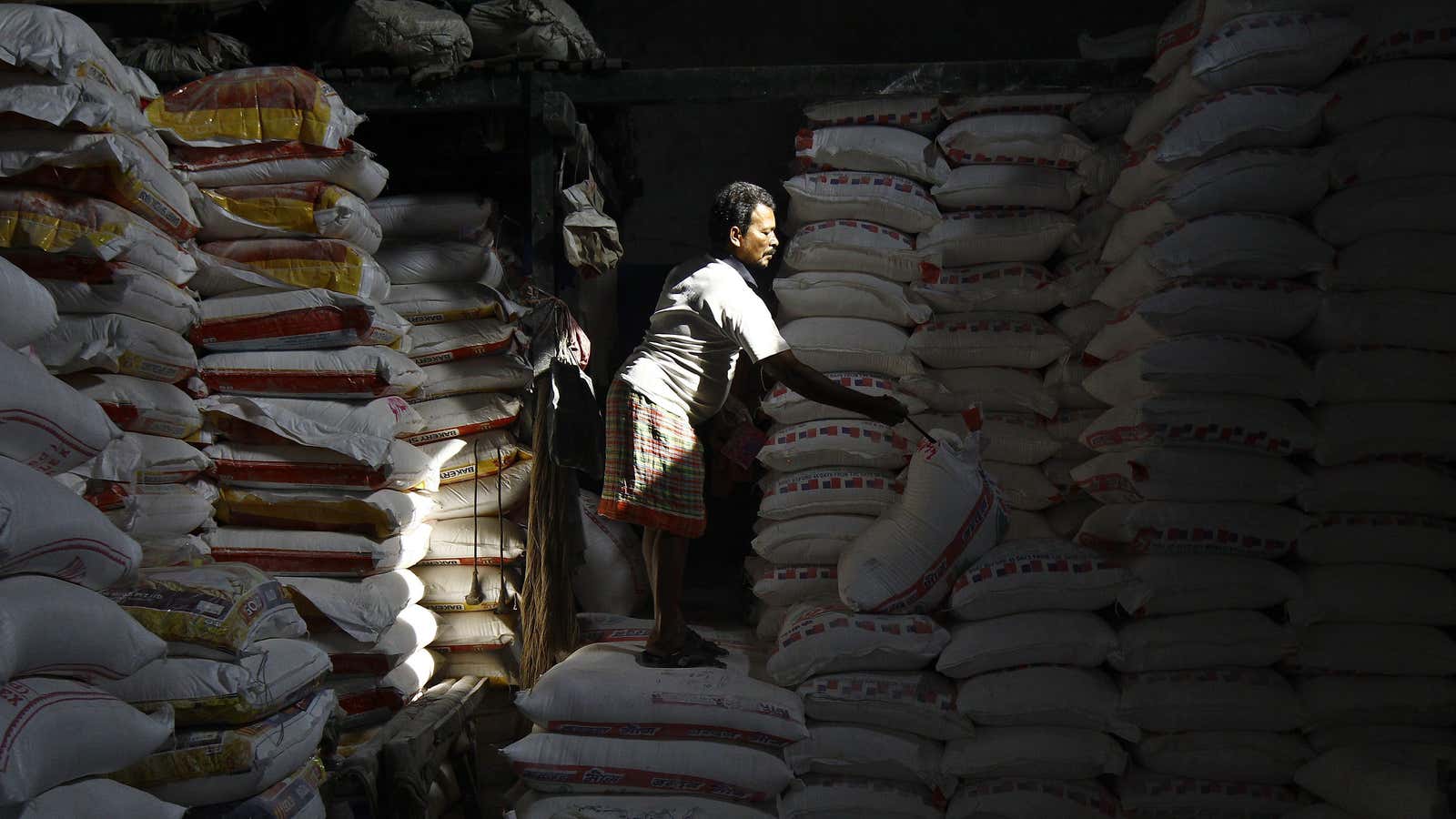India’s move to levy goods and services tax (GST) on some daily eatables is set to strain household budgets, already battling high inflation.
In June, the country’s GST council chaired by finance minister Nirmala Sitharaman pruned its exemption list to tax a host of goods and services. This included a 5% levy on pre-packaged and unbranded items such as wheat, rice, maize, makhana (fox nuts), specified flour, meat, and curd.
The revision kicked in yesterday (July 18). Besides increasing the costs for the customer, the move will fuel inflation expectations, according to Saurabh Agarwal, a tax partner at EY India. While the finance ministry said the changes were only technical and aimed at streamlining the tax structure, experts are surprised.
How much would the GST tweaks impact food inflation?
Food inflation (7.75% in June 2022) accounts for around 15% of India’s consumer price inflation.
“Assuming a quarter of those foods meet that (unbranded) definition, that would add to 0.2 percentage points to headline inflation,” Shilan Shah, senior economist at CapitalEconomics India told The Telegraph newspaper. “Additionally, higher taxes on inputs for processed grains, pulses and dairy, which account for almost 20% of the CPI basket, will put further upward pressure on consumer prices.”
Shah estimated that the revision could boost headline inflation by up to 30 basis points from August. This is likely to affect lower-income households the most.
Where else have the GST tax rates been revised?
There are 17 goods and services for which the levies have been revised.
The tax rate on tetra packaging has also been raised from 12% to 18% while cut and polished diamonds will attract 1.5% from 0..25% earlier. Some experts believe all this may prompt consumers to prefer branded items and create a more level playing field.
A survey by LocalCircles earlier this month showed that 45% of the businesses—big and small—are happy with the GST, while 24% complained of technical issues like connection, trouble with logging in, and glitches on the GSTN website.
A significant section of small traders, however, may be unhappy.
“This decision will empower big brands to capture the market at the cost of small manufacturers and traders. Special food items, cereals, etc, which were not branded till now, were exempted from GST…[the decision] will cause huge damage to the business of foodgrain traders in more than 6,500 grain markets across the country,” Praveen Khandelwal, secretary of the Confederation of All India Traders, told The Economic Times newspaper.
